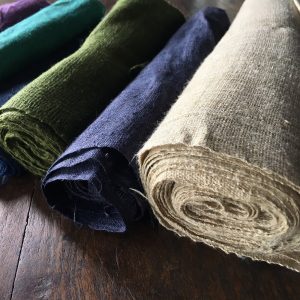To read the full article, please login. The full content of this article and all premium articles is available exclusively for site members.
Site membership is free. If you are an existing user, please login. New users may register below.
Innovations in technical textiles and nonwovens awarded
Innovations in technical textiles and nonwovens awarded at Techtextil / Texprocess 2015 The winners of the Techtextil Innovation Award 2015, presented for innovative ideas and future-oriented developments in the field of technical textiles, nonwovens and functional apparel textiles, were announced on the occasion of the opening ceremony of Techtextil / Texprocess fair in May in Frankfurt am Main, Germany. These great innovations illustrate exiting new application for technical textiles and nonwovens. The winning projects also illustrate the business focus and innovative spirit of European universities and public research institutes, partnering with the industry. Around 42,000 visitors from 116 countries and 1,662 exhibitors from 54 countries visited this year´s Techtextil / Texprocess fair, two leading international trade fairs. The event is a global centre for innovation in the field of high-tech fabrics, smart textiles and processing technologies. It exhibits a large spectrum of materials, processes and technologies for the entire textile value chain, focusing on new technical textiles, nonwovens and processing technologies for textile and flexible materials. The winners of the Techtextil Innovation Award 2015 in the respective segments are: Category “new technology”: 3D weaver(Sosa Fresh) The 3D weaver (http://www.sosafresh.com/3d-weaver/) is a loom specially designed for weaving in three dimensions. The 3d weaver can produce structures that have many applications for use in medical, architecture, vehicle, aerospace, and sportswear industries. Category “new product” : Embroidered Electrode with silver / titanium coating for long-term ECG Monitoring (Schiller AG, Serge Ferrari Tersuisse AG, Unico Swiss tex GmbH, Forster Rohner AG Textile Innovations, EMPA – Swiss Federal Laboratories for Materials Science and Technology) For the long-time monitoring of electrocardiograms, electrodes have to be skin-friendly and non-irritating. In addition, they have to deliver leads without artifacts even if the skin is dry and the body is moving. Today’s adhesive conducting gel electrodes are not well suitable for such applications. The inventors have developed an embroidered textile electrode from polyethylene terephthalate yarn (also the basis of polyester fibres) which is plasma-coated with silver for electrical conductivity and with an ultra-thin titanium layer on top for passivation. Two of these electrodes are embedded into a breast belt. They are moisturized with a very low amount of water vapor from an integrated reservoir. The combination of silver, titanium and water vapor results in an excellent electrode chemistry. With this belt the long-time monitoring of electrocardiography (ECG) is possible at rest as well as when the patient is moving. Category “new concept”: A Washable Digital Canvas for Infinite Expression (Switch Embassy, Forster Rohner AG) BioGlizz: Biological alternative to artificial snow for worldwide use (Deutsche Institute für Textil- und Faserforschung Denkendorf, Dresden University of Technology, Innovationsmanufaktur GmbH) The basic concept of BioGlizz is the development of a surface with good sliding characteristics as an alternative to artificial snow. This functional surface shall make it possible to do sliding sports such as skiing independently from climate impacts. The novel sliding layer shall consist of renewable biomass which will be immobilized to specific textiles. The hole BioGlizz System should not only be


